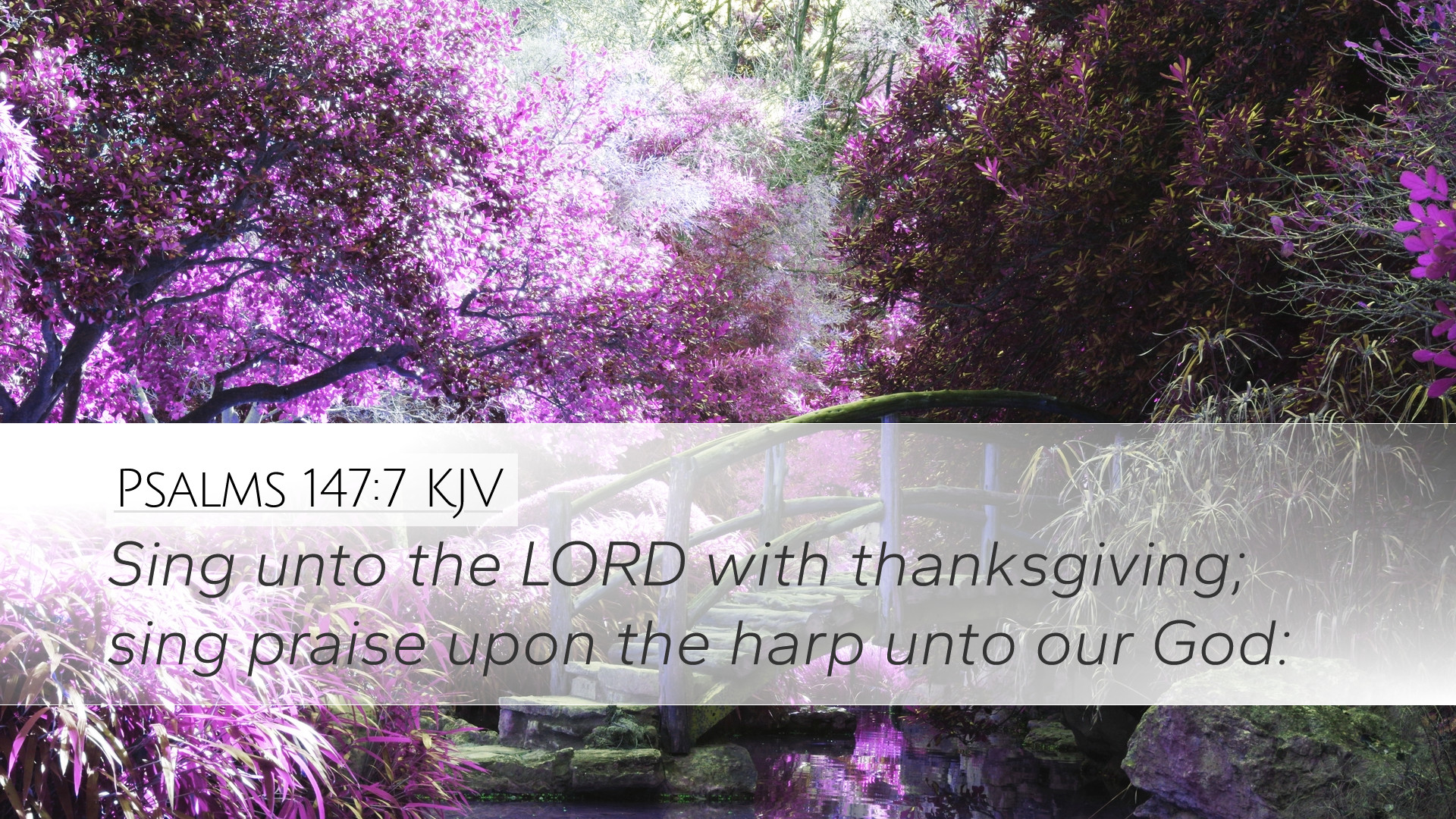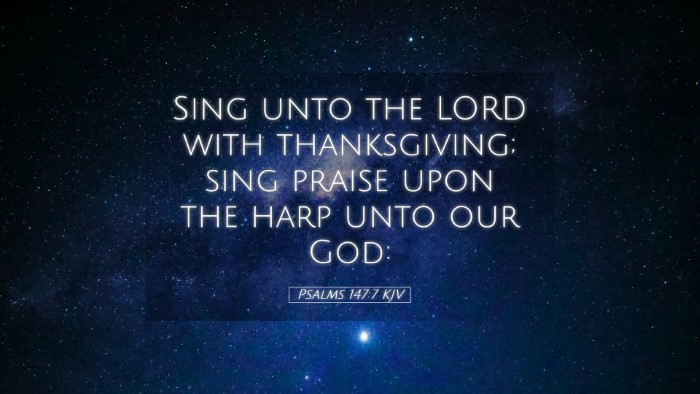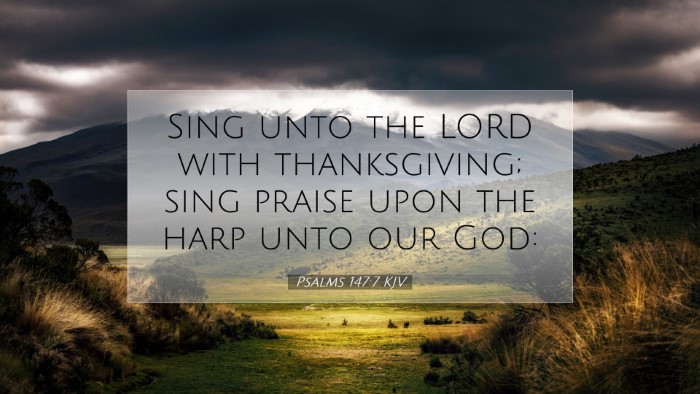Commentary on Psalms 147:7
Verse: "Sing unto the LORD with thanksgiving; sing praise upon the harp unto our God."
Contextual Overview
This verse is nestled within a psalm that celebrates God's greatness and His care over creation. It serves as a call to worship, inviting believers to express gratitude through song and musical instruments. The psalmist emphasizes the importance of recognizing God's attributes and His merciful dealings with humanity.
Interpretation and Insights
This verse highlights several significant themes which are essential for a deeper understanding of the text.
-
Call to Worship
Matthew Henry notes that this is an invitation to the faithful to offer their praises in response to God's goodness. The act of singing is not merely for entertainment but a profound expression of gratitude and acknowledgment of God's sovereignty.
-
The Role of Thanksgiving
Albert Barnes emphasizes that thanksgiving is crucial in the life of a believer. It reflects recognition of God's blessings and provisions. Barnes expounds upon the idea that genuine praise must stem from an appreciative heart that acknowledges God’s mercies.
-
Praising with Instruments
Adam Clarke comments on the mention of the harp, which signifies the beauty of worship through music. The harp, often associated with joy and celebration, reminds the worshiper that such expressions elevate their spirits and connect them with God. Clarke posits that music serves as a bridge, drawing the hearts of worshipers closer to the divine.
The Theological Implications
The nuances of this verse ripple through various theological dimensions.
-
The Nature of God
Understanding God's character is fundamental to worship. Matthew Henry states that the psalmist reflects on God's greatness and mercy, providing a rationale for the singing. It underscores that God is worthy of praise not only for His mighty acts but also for His loving kindness.
-
Human Response to Divine Grace
In response to God’s unmerited love, humanity is called to worship. Albert Barnes highlights the idea that a thankful heart naturally overflows with songs of praise. This interaction is foundational in the relationship between the Creator and His creation.
-
The Community of Believers
The communal aspect of worship is noteworthy. The command to 'sing' implies a collective participation, which is essential for the body of Christ. Adam Clarke suggests that worship expressed harmoniously signifies the unity of believers under God’s lordship.
Practical Applications
The implications of this verse extend into daily living for believers, offering actionable insights:
-
Cultivating a Spirit of Thanksgiving
Pastors and church leaders can encourage congregations to actively practice gratitude. Producing an environment where women and men openly express thankfulness can nurture a vibrant faith community.
-
Incorporating Worship into Daily Life
Students and theologians are reminded of the importance of integrating worship into everyday life. Clarke’s insights call for music that echoes praise, fostering a constant reminder of God's presence and goodness.
-
Utilizing Musical Worship
Theologians focusing on worship can explore the theological significance of music as a form of expression. Engaging with different instruments, like the harp, can enhance worship experiences and deepen the emotional and spiritual connection with God.
Conclusion
Psalms 147:7 encapsulates the heart of worship, threading together themes of gratitude, God's greatness, and the joyous expression of faith through music. The insights gathered from public domain commentaries elucidate the rich theological tapestry found in this brief verse, providing both understanding and practical applications for believers. As we engage in worship with thanksgiving and song, we mirror our Creator's goodness and invite others into the beauty of His presence.


